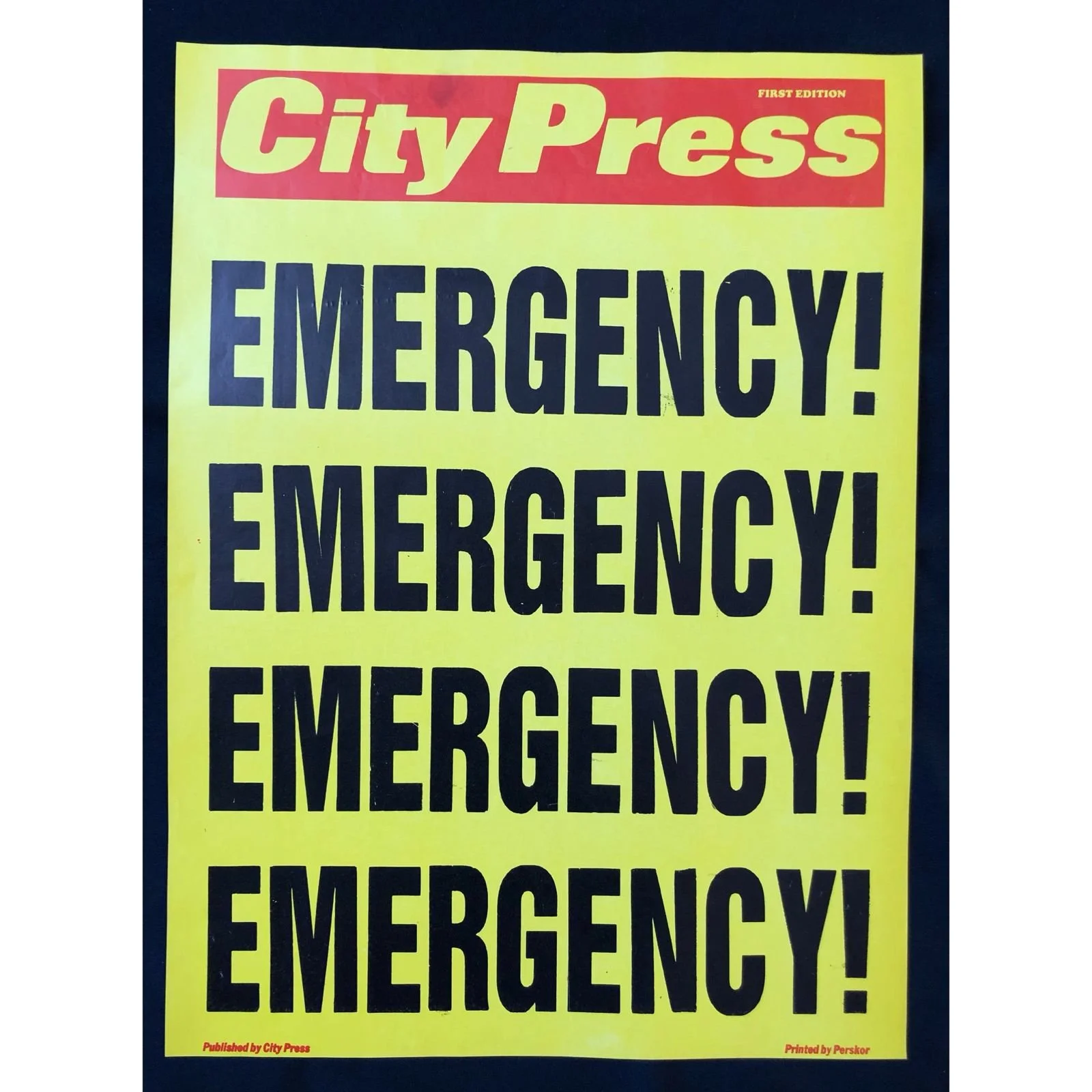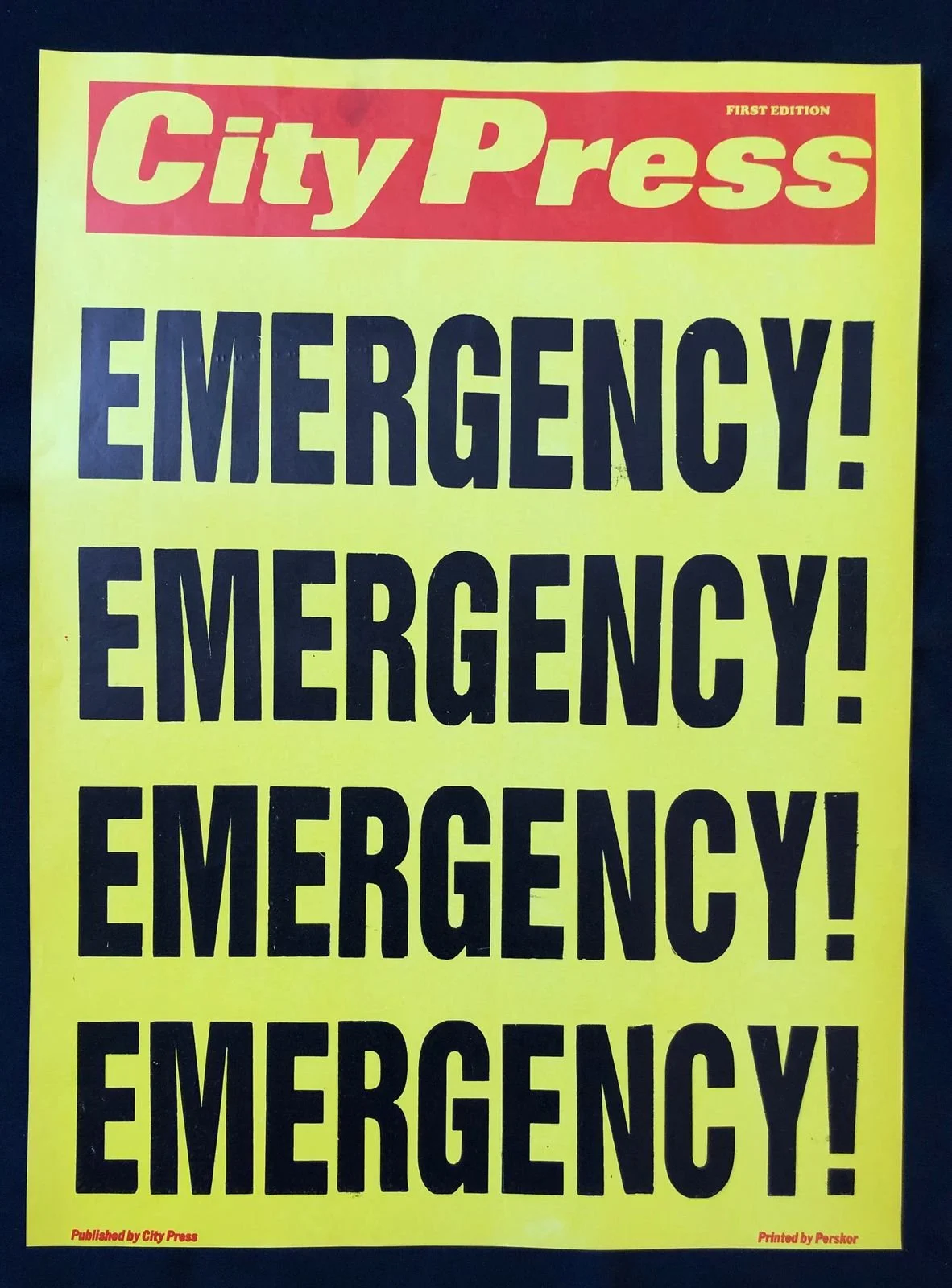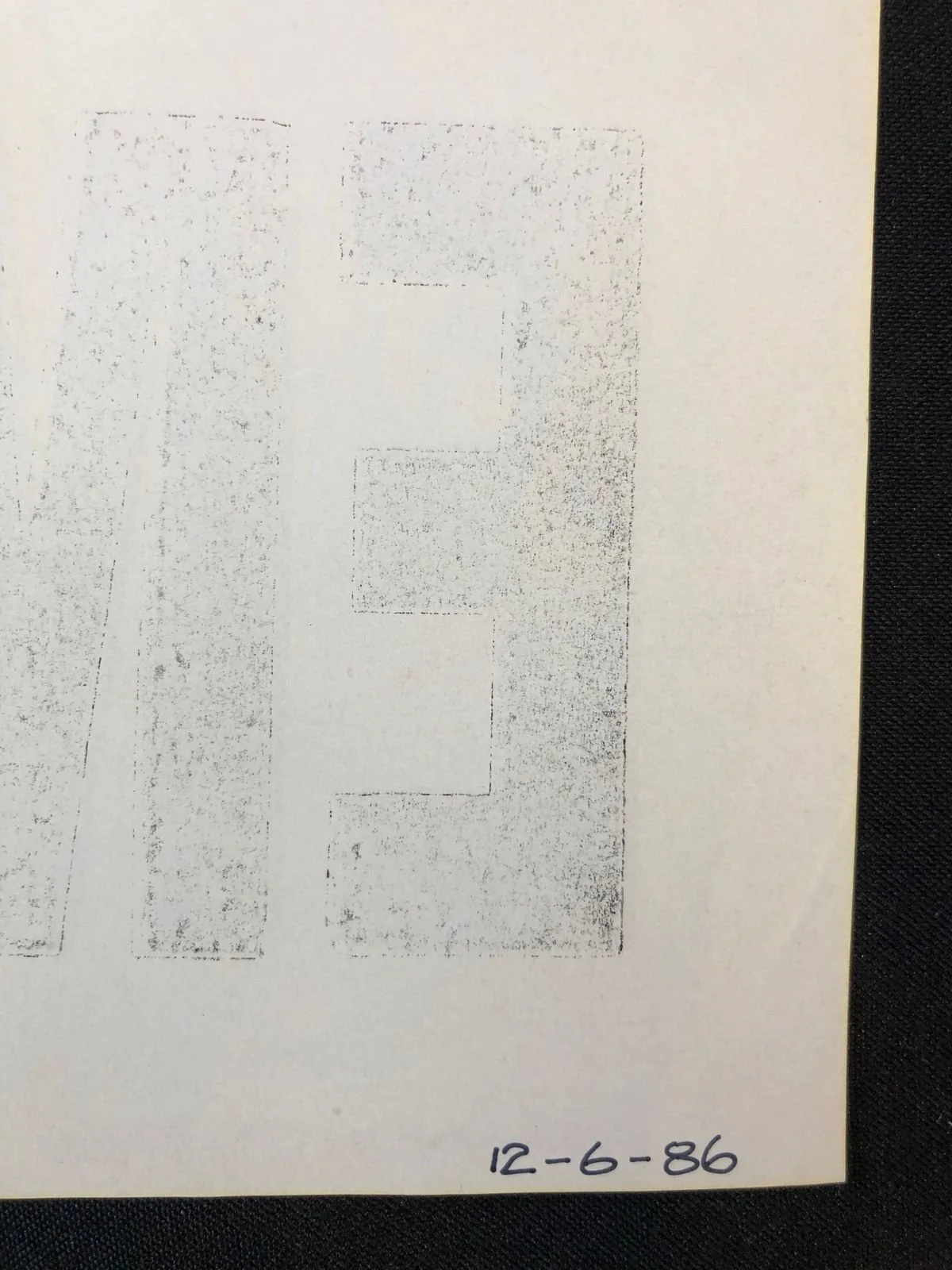1986 State of Emergency
Printed by City Press on 12 June 1986
On 20 July 1985, President PW Botha declared a state of emergency in 36 of the country’s 260 magisterial districts. Within the first six months of the Emergency, 575 people were killed in political violence – more than half killed by the police. Under the provisions of the Emergency, organisations could be banned and meetings prohibited; the Commissioner of Police could impose restrictions on media coverage of the Emergency; and the names of detained people could not be disclosed. On 5 March 1986 Botha announced that he would lift the Emergency, and on 7 March the announcement was made law.
The lifting of the Emergency was short-lived as on 12 June 1986 – four days before the 10th Anniversary of the Soweto Uprising – the government declared a country-wide State of Emergency. The crackdown differed from the 1985 Emergency in that it covered the entire national space and was more rigorous: political funerals were restricted, curfews were imposed, certain indoor gatherings were banned and news crews with television cameras were banned from filming in areas where there was political unrest.
This in essence prevented both national and international news coverage of police brutality and the government’s faltering attempts to contain the wave of social unrest. An estimated 26,000 people were detained between June 1986 and June 1987.
420mm x 560mm
Sold Jan 2026



